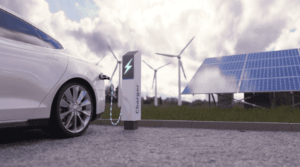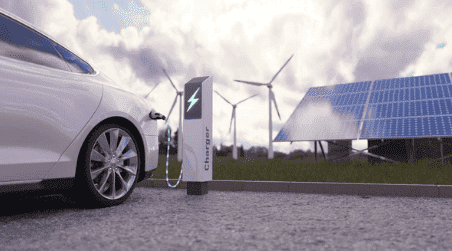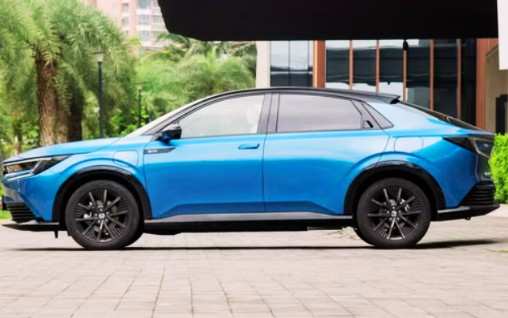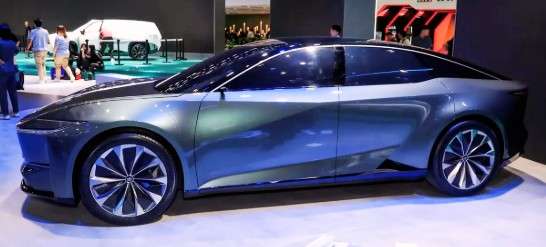With the increased usage of EVs in the market, adequate and clean methods of charging vehicles have also been in demand. It is for this reason that solar EV charging station in India have become popular these days.
They are the best because they enable one to charge his or her vehicle using sunlight, making it cheaper and environmentally friendly in the long run. But how expensive is it to install a charging station?
If you want to install a solar EV charging station for personal use or customers or employees at your shop or office, it is essential to know the cost of such a station. Here are the factors that define the solar EV charging station cost, as well as the cost estimate and long-term advantages of this ecologically friendly investment.
At the end of this article, you will understand how much it will cost you to install a solar charging station for your electric car.
Overview of Solar EV Charging Stations
In the current world, the incorporation of electric vehicles (EVs) has become increasingly popular. These vehicles require charging stations to operate. Yet, what if these solar EV charging station were powered by sunlight? Yes, such solar EV charging station have arrived now! These stations use energy from the sun to charge the vehicles that use electricity to operate. This removes a load on the electric poles and is also economical for the environment.
Especially in the future when everyone will use electric cars, such solar ev charging station will be very useful. In this article, you will be informed about the total cost of installing these stations, how much it takes to maintain them, and the advantages of using them.
Factors Influencing the Cost of a Solar EV Charging Station
1. Size and Capacity
- This means that a larger station and the ability to charge more automobiles at once increases the cost of charging.
- Even a simple setup to charge only one car at a residence will be quite cheap whereas a station where many cars can be charged at once will be more costly.
- As the charging capacity increases, there will be a need for more inverters, controllers and battery storage systems thus the cost will be high.
2. Site Preparation
- Another factor that influences the cost is the kind of environment where the station is supposed to be established.
- It will be easier and cheaper to establish on flat grounds but in areas with hilly or rocky terrains there will be a lot of exertion and capital needed.
- In cases where there are existing electricity wires and off-grid solar EV charger connections, then it will be easy to install or else it will involve extra charges.
3. Solar Panel Efficiency
- The more efficient the solar panel EV charger, the amount of electricity is produced from the sunlight which is somewhat costly at first.
- Lower efficiency panels will be slightly cheaper but they will generate lesser current and may prove more expensive in the long run.
4. Battery Storage Capacity
- Battery storage, similar to the battery of a mobile phone, is a method of storing power. The benefit of this is that one can use electricity when there is little sunlight or when more power is required. This means that larger batteries can hold more electricity but such batteries will cost more money.
- Another important factor concerning which battery to buy is the cost of the battery. In general, lithium-ion batteries that cost slightly more are more durable and have a better performance.

Cost Breakdown of a Solar EV Charging Station
-
Solar Panels
These are the panels that capture the sun and turn it into energy that can be used in homes and other buildings. The cost of solar panels depends on the type, power they generate and the power required by your home or business. In general, the price of the panel can fluctuate between ₹ 200 to ₹ 300 per watt in the Indian market.
In the end, the total cost of setting up a house can be as low as ₹20000 or as high as ₹100000. However, for shops or large places, this cost may range between ₹20,00,000 to ₹1,00,00,000 or perhaps more.
-
Inverter and Charge Controller
Both these devices are in a way that they help in converting the electricity generated from the solar panel into the right form. The inverter then changes the DC into AC which is used by electric vehicles. At the same time, the charge controller prevents overcharging of the battery, which is also adverse to the battery.
Their price also depends on their capacity and grade. For a house, this can cost anything from ₹ 10,000 to ₹ 50,000 while for shops or larger spaces, the cost can range from ₹ 1, 00,000 to ₹ 5, 00,000.
-
Wiring and Installation
This entails the wiring and the work that is done to connect the solar panel, inverter, charge controller and charger. This cost also varies depending on the intricacy of your system and the going rates for labour in your region.
The cost of wiring and installation for a home charging station can range from ₹75,000 to ₹3,75,000. Stations for commercial use need additional wires and intricate installation thus the price ranges from ₹7,50,000 to ₹22,50,000 or more.
-
EV Charging Infrastructure
This includes the charger and the equipment connected to the charger through which the vehicle is charged. The cost of the charger varies with its speed and kind. Level 2 charger installation at home costs roughly between ₹ 37500 to ₹ 150000.
Level 3 chargers are used for commercial purposes, and their price ranges from ₹7,50,000 to ₹30,000,000. Besides these, the cost of a box to protect the charger, the stand to mount the chargers and the software to support them could also be involved.
-
Maintenance and Support
Charging stations using energy from sun panels need to be serviced often so that they can continue to work and have a long life span. Some of these are annual testing, cleaning, repairs, and software updates among others.
The annual expenditure incurred for maintaining a home station may vary between ₹15,000 and ₹37,500. These are slightly more complicated and their annual maintenance can cost between ₹75,000 to ₹3,75,000.
Examples of Solar EV Charging Station Costs
1. Residential Setup
A typical residential or home solar EV charging station designed to charge one or two electric cars might involve the following cost breakdown:
- Solar Panel: ₹5,00,000
- Inverter and Charge Controller: Rs 200000
- Wiring and installation cost: Three lakh rupees only.
- EV Charger: ₹1,50,000
- Annual maintenance and support: 300 rupees
- Total initial cost: The cost was nearly ₹11,50,000.
Note: This is an approximate cost. Market price varies according to the type of material and the company that offers installation services. For more detailed pricing, you can check out this guide on EV infrastructure costs.
2. Commercial Setup
A commercial solar EV charging station designed to serve multiple vehicles could involve a more extensive and expensive setup:
- Solar Panel: ₹50,00,000
- Inverter and Charge Controller: Rupees twenty-five lakhs only.
- Wiring and installation cost: Rs. 20,00,000
- EV Charger (kai Level 3 charger): Rupees one crore twenty lakhs only.
- Annual maintenance and support: Rs 3000
- Total initial cost: It can be roughly estimated that around ₹2,15,00,000.
Note: This is an estimated cost. The actual cost will vary depending on the material used and the company that is installing it. For more detailed pricing, you can check out this guide on EV infrastructure costs.
Cost-Saving Benefits of Using Solar EV Charging Stations
1. Reduced Energy Bills
The greatest benefit is cutting down on electricity expenses as the plants make use of solar energy for their processes. You can recharge your vehicle by harnessing natural power such as sunlight to produce electricity that you can use.
If you decide to invest some money in such a business in a few years, it will be possible to achieve such indicators that can compensate for the money put into the business.
2. Tax Incentives and Rebates
National governments and local authorities always encourage the deployment of renewable energy technologies such as solar charging stations through the provision of tax incentives, subsidies and grants. These financial aids help in reducing the costs of installation of these charging stations by eliminating the initial costs.
For instance, in the US, individuals and companies can claim a part of the cost of installing solar panels from their taxes under the Federal ITC. In the same way, most state and local initiatives similarly provide subsidies and rebates that decrease the overall cost.
Future Trends in Solar EV Charging Station Costs
In the future, many things can be done to reduce the cost of installing these stations, make them more efficient and expand them to more places. Let’s look at these future trends in a little more detail:
- Advances in solar panel technology: One of the most important trends is the continuous improvement in solar panel technology. New technologies such as bifacial panels that collect sunlight from two sides and more cost-effective perovskite solar cells are set to revolutionize the market in the future.
- Declining cost of battery storage: Battery storage systems, which are essential for maintaining a constant power supply, used to be one of the most expensive parts of a solar-powered electric vehicle charging station. But the cost of batteries, especially lithium-ion batteries, is constantly decreasing. This trend is expected to continue in the future as their production is increasing and new technologies, such as solid-state batteries, are emerging.
- Use of smart grid technology: In the future, solar-powered EV charging stations can greatly benefit from smart grid technology. Smart grids use new technology to improve the distribution and use of electricity. This will lead to better power management, reduce power wastage and overall reduce the cost of solar electric car charging stations.
- Government policies and subsidies: Governments around the world are now recognizing that it is important to promote renewable energy and electric vehicles. Therefore, it is expected that in the future, even stronger policies and subsidies will be made to reduce the cost of installing solar electric vehicle charging stations. These can include tax exemptions, grants, rebates and subsidies, which can be given for charging stations installed in both homes and offices.
- Integration and innovation of technology: Many technologies like the Internet of Things (IoT), Artificial Intelligence (AI) and Blockchain will also help in reducing the cost of solar-powered EV charging stations. Monitoring and maintenance will become easier with the help of IoT devices, which will reduce the cost. AI can improve charging patterns and power usage, while blockchain can enable secure and transparent transactions and decentralised power trading.
- Improving global supply chains: Improving the global supply chain for solar and electric vehicle charging equipment will also help reduce costs. Better logistics, easier access to raw materials and more efficient production methods can reduce the cost of critical components.
Conclusion
Investing in a solar EV charging station not only supports environmental sustainability but also offers significant financial benefits. By carefully considering the factors influencing costs and taking advantage of available incentives, users can make informed decisions and enjoy the long-term advantages of clean, renewable energy for their electric cars. Explore our latest information on electric vehicles and sustainable transportation on EV Hexa.
FAQs
1. Why do solar charging stations not run more?
- High initial cost: Solar panels, inverters batteries, and installation remain a capital-intensive investment.
- Lack of space: Installation of solar panels calls for a lot of space and this is not easily achievable given that most areas are urban.
- Need for battery storage: For this reason, charging has to be even at night or during cloudy moments, which means that a good battery has to be installed, and this is not very cheap.
- Irregular power generation: The energy gotten from the sun is not constant and as a result of weather changes and the time of the day it might entail some difficulties in charging.
- Grid connection: A few things have to be done to connect solar energy to the electricity grid and for that government’s permission is required making the whole work more complicated.
2. How much does it cost to set up a solar charging station?
The cost of setting up a solar charging station in India (approx):
- Home installation: ₹11,50,000
- Commercial installation: ₹2,15,00,000
3. How can electric cars be charged using electricity from solar panels?
There are a few things you need to do to charge an electric vehicle with solar panels:
- Install solar panels: First, construct a solar panel that should be placed on the roof or any other place that is expected to generate electricity from the sun.
- Use an inverter: The inverter is a device that translates the DC electricity that is generated by the solar panels into AC electricity.
- Install a charge controller: There, the charge controller is responsible for forwarding the power received from the solar panels and doing appropriate and sufficient charging of the EV charger.
- Connect to EV charger: This electricity in AC is then transferred to the EV charger that is fitted in your car.
- Battery storage (optional): In case you want to save this energy for a cloudy or nighttime, you can also add battery storage systems.
- Charge the vehicle: Take your car, connect the charging point to this car and the power generated from solar energy will charge your car.
4. What is the current rate of solar EV charging station in India?
Currently, there are over 1800 government-operated solar EV charging stations in India with proposed expansion to several thousands of stations.









